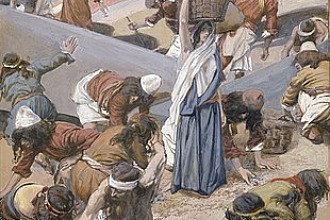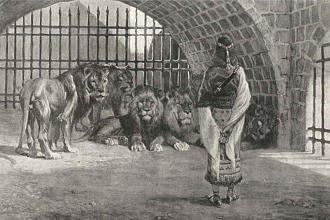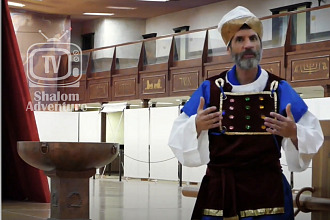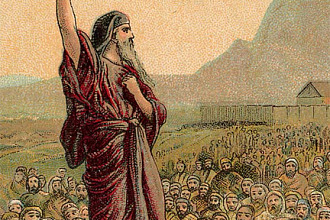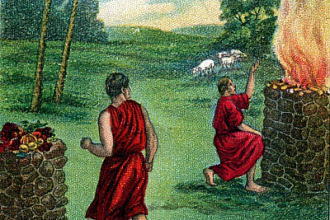The Torah says, "'When your son asks you in time to come, saying, "What is the meaning of the testimonies, the statutes, and the judgments which the Lord our God has commanded you?" then you shall say to your son: "We were slaves of Pharaoh in Egypt, and the LORD brought us out of Egypt with a mighty hand; and the LORD showed signs and wonders before our eyes, great and severe, against Egypt, Pharaoh, and all his household.
Then He brought us out from there, that He might bring us in, to give us the land of which He swore to our fathers. And the LORD commanded us to observe all these statutes, to fear the LORD our God, for our good always, that He might preserve us alive, as it is this day. Then it will be righteousness for us, if we are careful to observe all these commandments before the LORD our God, as He has commanded us."'" Deuteronomy 6:20-25
Some people may wonder how they can best answer questions regarding their faith and share God with others, thinking it is simply a matter of having all the facts, but that is not what God's word says. Note from the passage above that you are not to say that others or someone else I know experienced God's deliverance from the slavery of sin and guilt or God comforted someone else during a hard time. It is not enough to say or even know that God has helped people in the Bible or anyone you know today; you need to be able to say that God has helped us. You are to share what God has done for you.
To be able to include yourself in the "we" of those to whom God is a mighty influence in their lives you have to have a relationship with God for yourself. Then and only then can you truly share with others what God has done for you, and how He has delivered you and brought you through the struggles in life. A head full of knowledge about God without the true knowledge of God that can only be found through a personal relationship with him is worthless. You need to know God to know to truly know how to lead others to him, not just facts.
Picture originally found here









